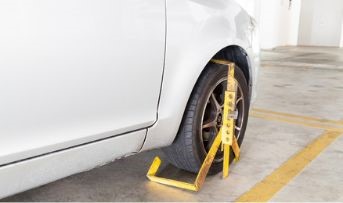Blog Details - Magma Insurance

Understand these five car parking rules to avoid traffic violation 16th November 2022
Car parking has always been a major challenge in most metro cities. The number of cars on the roads is constantly increasing while the parking space and the available supporting infrastructure have yet to develop at a matching pace.
A traffic challan for violation of parking rules is very pinching and bothering. What do we do if there is not much free legal space available for parking our car? The legitimate answer is understanding the car parking rules to avoid traffic violations.
Let us go through the five car parking rules that one must know.
1. Way of parking:
According to section 122 of the Motor Vehicles Act, 1988, a car owner should always park his car in a manner that does not cause any inconvenience to other road users. Also, the way of parking the car should not be dangerous, nor should it cause any obstruction to other vehicles and users of the road.
If there is a signboard depicting the correct manner of parking your car on the roadside, you should abide by it and park your car accordingly.
2. An abandoned or unattended car:
According to section 127 of the Motor Vehicles Act 1988, you cannot abandon your car or leave it unattended at a public place where you cannot legally park it.
A police officer with jurisdiction in that area can tow your car away or make it immobile by using methods such as clamping the wheels. Also, you or the person in charge of your car will be responsible for paying the towing charges.
3. Prohibited parking:
You cannot park your car in a no-parking zone or any spot where parking is prohibited, on a footpath, on the wrong side of the road, on private property without the owner's permission, alongside a parked vehicle so that you do not obstruct the traffic flow, in front of any gate that blocks the entrance to any place, in front of a school or hospital entrance, near a bus stop, a traffic signal, or a road crossing.
Also, your vehicle should not obstruct the view of a signboard. You are not permitted to park at a bend, at the top of a hill, or even near or on a bridge so that you do not obstruct incoming traffic.
4. Parking restrictions at home / society:
Even your housing societies or homes have car parking rules you must follow. You should park your car so that it does not obstruct or block your neighbour's gate.
It is illegal to park your car at the boundary of your own house if your parking style obstructs the neighbour's gate in any way. He may be unable to open the gate of his house fully. In such a case, he can file a case, serve you a legal notice and obtain an injunction restricting you from blocking his gate.
5. Blocking a parking lot exit:
You cannot park your car in front of another vehicle in a parking lot in such a way that his way is obstructed, and the owner of that vehicle is unable to take his car out. In such a case, he can call a cop, and you will have to pay a fine for blocking his way.
Parking fines differ from one city to another in India. Understanding the parking rules in your respective cities is crucial to avoid traffic violations. So, abide by these parking rules to avoid catching yourself in chaotic situations and save on fines and penalties.
Similarly, having a good car insurance policy will help you save on other penalties, as car insurance is mandatory to drive legally in India. Also, it will provide coverage in case of an accident, a mishap involving your car, or even if it gets stolen. Hence, go for the best car insurance in India and forget the stress of expenses involved in unexpected situations.
Click HERE to buy the best car insurance in India.
Disclaimer: The information provided above is for illustrative purposes only. To get more details, please refer to policy wordings and prospectus before purchasing a policy.
